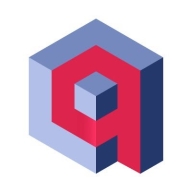

Microsoft Azure Cosmos DB and Qdrant compete in database services. Azure Cosmos DB leads in global support, while Qdrant excels in vector search capabilities and cost-effectiveness for specialized uses.
Features: Microsoft Azure Cosmos DB includes multi-model database support, integration with Azure services, and global distribution with low-latency access. It supports a range of applications with reliable scalability. Qdrant specializes in vector database functionalities, designed for fast similarity search and real-time machine learning. It manages high-dimensional vector computations effectively, benefiting AI-driven projects.
Ease of Deployment and Customer Service: Microsoft Azure Cosmos DB provides smooth deployment via the Azure portal and extensive customer support which aids onboarding. It integrates well within the Azure ecosystem for a better deployment experience. Qdrant offers straightforward deployment options tailored for AI and real-time data processing use cases, though it might not have the same level of documentation and support network as larger platforms.
Pricing and ROI: Microsoft Azure Cosmos DB features a flexible pricing model with potentially higher initial costs, offering service bundles for enterprise needs and long-term ROI. Qdrant is economical in setup costs, providing better ROI for applications requiring intensive vector computations, with pricing influenced by specific database needs and budget constraints.

Microsoft Azure Cosmos DB is a globally distributed, multi-model database service providing scalability, user-friendliness, and seamless integration, suitable for managing large volumes of structured and unstructured data across diverse applications.
Azure Cosmos DB is renowned for its scalability, stability, and ease of integration, offering robust support for multiple data models and APIs. Its capacity for handling unstructured data efficiently and providing real-time analytics makes it ideal for applications requiring high performance and global distribution. With features like automatic failover and integration with Microsoft products, users benefit from cost optimization and secure data handling. Enhancement opportunities include simplifying queries, improving documentation, and expanding backup and analytics functionalities.
What are the most important features of Microsoft Azure Cosmos DB?Azure Cosmos DB is frequently used in sectors like web, mobile, IoT, and analytics. It supports applications as a key-value store, processes real-time data, and enables global scalability with low-latency access. Its big data management capabilities and integration with Azure services enhance its utility across industries.
Qdrant is a powerful tool for efficiently organizing and searching large volumes of data. It is particularly useful for tasks such as data indexing, similarity search, and recommendation systems.
With fast and accurate results, it is suitable for various applications including e-commerce, content management, and data analysis. Users appreciate Qdrant's efficient search capabilities, high performance, and ease of use.
Its quick and accurate retrieval of relevant information allows for easy navigation and analysis of large datasets.
The intuitive interface and straightforward setup process make it accessible to users with varying levels of technical expertise.
We monitor all Vector Databases reviews to prevent fraudulent reviews and keep review quality high. We do not post reviews by company employees or direct competitors. We validate each review for authenticity via cross-reference with LinkedIn, and personal follow-up with the reviewer when necessary.